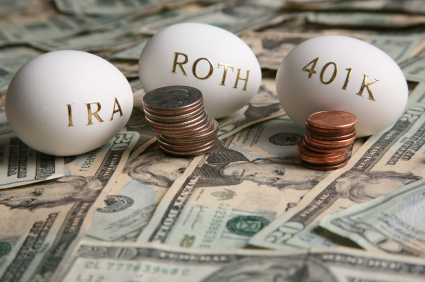

The Roth IRA vs Traditional IRA debate is still one that confuses most investors. And now that employer retirement plans are starting to offer Roth 401ks in addition to Traditional 401ks, it’s obvious that without a resource to guide you in the right direction, you may end up paying more taxes than desirable or making a decision that doesn’t fit your long-term financial plan.
You’ve heard me mention this before – rules of thumb apply to no one – and it’s true here as well. There’s no set rule that says everyone should contribute to a Roth IRA, despite what mainstream financial media may say. And just because it’s “new” and “trendy,” doesn’t mean it’s the best tool for your long-term financial goals.
A Roth IRA is an individual retirement account that allows your contributions to grow tax-free and after age 59.5, tax-free when withdrawn. The kicker? You can’t deduct the contributions on your tax return.
A Traditional IRA is an individual retirement account that allows your contributions to grow tax-deferred and upon attainment of age 59.5, taxable when withdrawn. The difference? You CAN deduct the contributions on your tax return – given specific limitations.
Tax-free; tax-deferred: tax-free means it grows each year and can be withdrawn free of taxes; tax deferred means it doesn’t get taxed until withdrawn.
Can deduct; can’t deduct: under a Traditional IRA, your taxable income is decreased (can deduct) by the amount of your contribution (subject to phase-out rules defined below), under a Roth IRA, your taxable income doesn’t change (can’t deduct) by the amount of your contributions.
What about the 401(k) side of the debate?
The traditional 401k versus Roth 401k is the same concept as the IRA, except for contribution limits being greater and an employer match thrown into the mix. Keep in mind, an employer must place matching contributions into the traditional side even if you only contribute to the Roth account.
In financial planning, there are a lot of variables that must be assumed. Growth rates, contribution rates, inflation rates, tax rates, among others. This last variable, tax rates, is where the heart of the Roth IRA vs Traditional IRA debate is. The question is, does it make better financial sense to pay taxes now (i.e. fund the Roth side) or pay taxes in retirement (fund the traditional side) during which it’s assumed your earned income will be less?
While I would love to give you a one sentence answer to the debate, I can’t, and no one else can either. It’s different for each person. Simple math can help shed light on the debate, but we have to make an educated guess on where tax rates will be in retirement. And trying to guess what our representatives in Washington DC are going to do tomorrow, let alone 30 years from now, is quite a challenge.
Regardless of where you are in your earnings years, perhaps just starting out, mid-career or cramming for retirement, we are of the belief that a sound financial plan can help solve the Roth IRA vs Traditional IRA debate as it pertains to your specific situation. We’ll work with you and your accounting professional to come up with the ideal solution to helping you accomplish your financial goals and then give you actionable steps to take to implement these solutions.
Image credit: WAMY

Experienced Advisors Committed to Guiding Your Financial Journey with Integrity.


